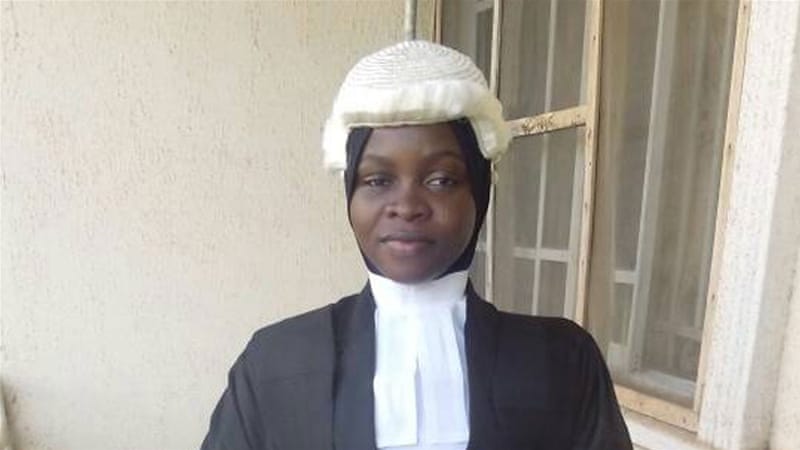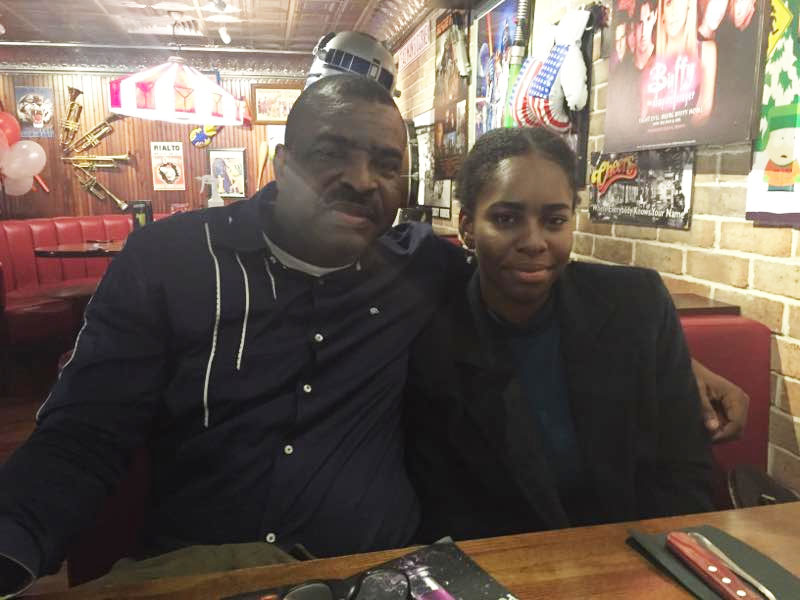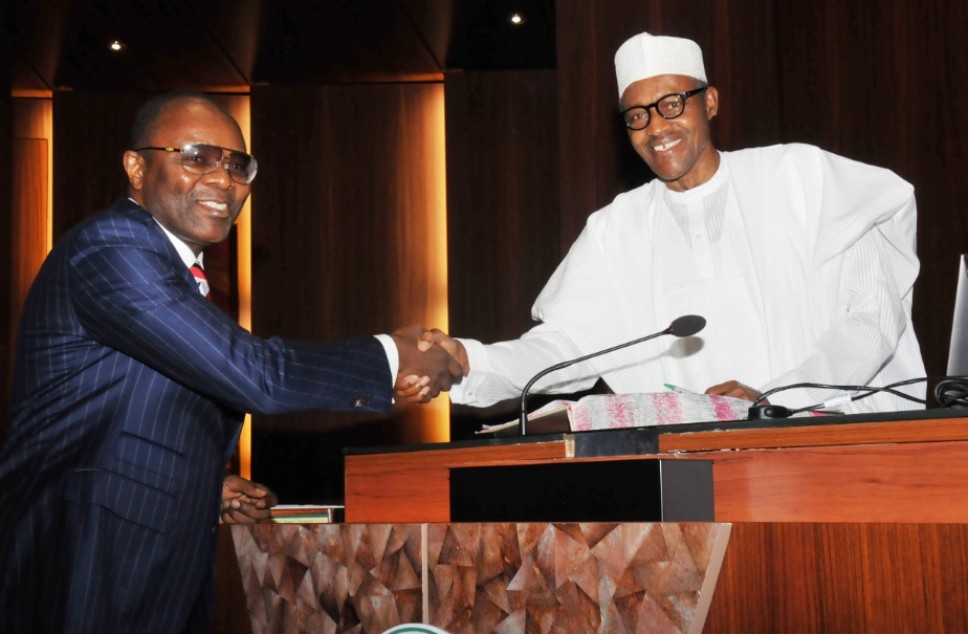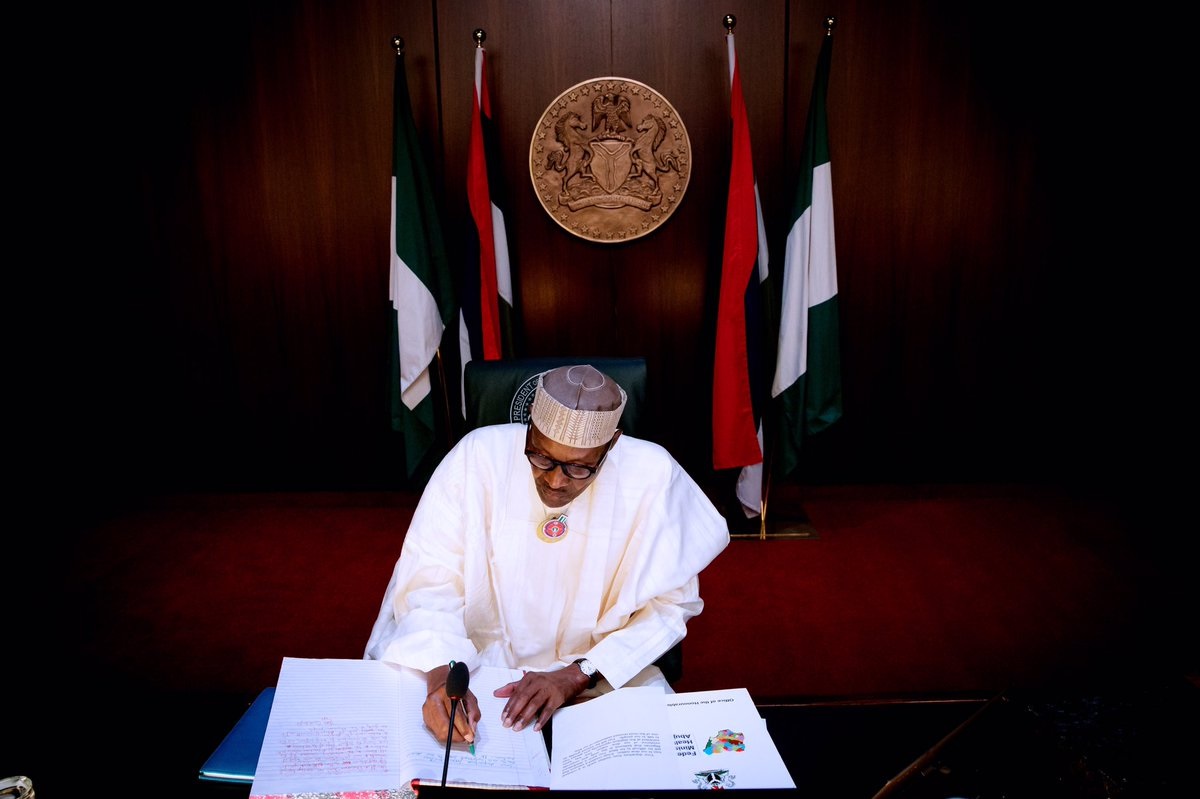Tradition and custom received a jolt at the Nigerian Law School a few weeks back. The school’s graduate, Miss Amasa Firdaus, had been denied the prestigious honour of being called to the Nigerian bar for flagrantly refusing to remove her hijab for onward procession to the venue of the ceremony. Back and forth arguments have been bandied for and against her refusal to conform to the dictates of a law school which, following the footsteps of the hyper-conservatism of the law profession in Nigeria, mandates its entrants to sign off their right of antagonism against its conservative dictates. One of such rules is that a female must not don any other cap underneath her head while putting on the lawyers’ wig. In spite of entreaties to conform, Miss Firdaus reportedly blatantly refused, choosing to obey the sartorial prescriptions of her religion than that of her potential law profession.
In a Nigeria riven by ethnic and religious bigotry, Firdaus has unconscionably enlisted several following and antagonists. One of such was the apex body of Muslims called the Nigeria Supreme Council for Islamic Affairs, (NSCIA). Vowing to defend her over what it labeled “victmisation, dehumanisation and gross injustice,” NSCIA also demanded an apology from the Body of Benchers and an immediate reversal of the “injustice.” Those who opposed what they called Firdaus’ attempt to introduce the fissure of religion into the hallowed courtyard of law, simply labeled her act an extremism of the hue of Boko Haram insurgency.
Even if she was the marionette of some highly-placed persons who fiddled with her strings as some people have alleged, Firdaus deserves to be congratulated for her decision to, like the anarchist, Paul Feyerebend, be against method and against the norm. Some icons in history have also chosen, like her, to tread the unfamiliar route of disobedience against societal norms. While for virtually all of them were erected crucifixes, very few of them got prenatal congratulations for the birth of their disobedience to constituted norms.
One of such was American transcendentalist, Henry David Thoreau. At the peak of the slavery crisis in Europe and America, New England quaked in the 1840s and 1850s with calls for abolition of slavery. Indeed, after the Fugitive Slave Act of 1850, the environment became so inflamed. It was in the midst of this charged passion that Thoreau delivered his 1848 lecture at the Concord Lyceum which he entitled “The Rights and Duties of the Individual in relation to Government.” It was this which later transformed into an essay first published with the title Resistance to Civil Government in 1849 as part of an anthology. His argument was that individuals should not allow governments of whatever kind to “overrule or atrophy” their consciences. He specifically charged the people with the right and duty of ensuring that they disallow all manner of acquiescence so that they would not, by so doing, become governments’ agents of injustice. Deploying metaphor to ram home his points, Thoreau compared government to a machine and said that at any point when the machine was producing injustice, the people have a corresponding duty as “conscientious citizens” to turn themselves into “a counter friction to stop the machine.”
Advertisement
Another person who ran against the mill was Rosa Louise McCauley Parks. An activist of the Civil Rights Movement, on December 1, 1955, in Montgomery, Alabama, aged 42, Parks chose to decline a potentially destructive order of a bus driver, James F. Blake, to give up her seat in the “colored section” where she sat, in favour of a white passenger. The “whites-only” section of the bus had been filled. Though many others had risked such disobedience and had been arrested, Parks’ was unique because she thereafter went through a painful court challenge after her arrest for violating Alabama segregation laws. She had told the driver, “My feet are tired,” a metaphor for blacks’ disavowal with racial segregation.
But for her serpentine entrance into the ranks of those who kick against the ultra-conservatism of the law profession by wearing the cloak of religion, Firdaus had merely rekindled a general disdain for decades of sheepish abidance by the codes of inherited English legal system. Almost six decades after the lowering of the Union Jack, the Nigerian legal system is still tied to the apron strings of Britain. How do Africans continue to wear inconveniencing suits and ties inside the scorching sun, rigidly patterning their legal system after Britain’s and refusing to shift ground from her myriad English system’s inconveniences in favour of modernity and African ways of life?
There is no doubt that one of the first things Europe did upon entering Africa was to little the African in his own estimation by denying his history. Hugh Redwald Trevor-Roper, a British historian of early modern Britain and Nazi Germany and Regius Professor of Modern History at the University of Oxford came in handy here. He had said, “Perhaps in the future, there would be some African history to teach, but at present, there is none. There is only the history of Europeans in Africa while the rest of Africa is darkness and darkness is not a subject of history.” Haruna Ishola, Yoruba’s Apala music maestro whose songs were loaded with African jurisprudential thoughts, had in one of his vinyl, debunked this and spelt out the robustness of the African mind. Comparable to the modern day concept of resource which cannot be conceived without its variations, Ishola had sang that the snail which enters an Agatu land was a lucky being. This same animal which has zero resource value in Agatuland because it is forbidden, is a great resource is Western Nigeria where its worth is comparable to gold.
Advertisement
In the legal profession, the first thing the rampaging Europeans did was to impose the common law of England, the doctrine of equity and the Statutes of General Application enforced in England on January 1, 1900 as enforceable in Nigeria too. Prior to then, Africa, which had its own legal system, had it systematically denounced through Britain’s introduction of what it called the repugnancy test which claims that African customary law was only allowed if it was not repugnant to natural justice, equity and good conscience; the standard of England! It took the scholarly interventions of African historians, anthropologists, novelists and leaders like Prof Omoniyi Adewoye, a legal historian; Bolaji Idowu; Leopold Sedar Senghor and his Negritude and Nwalimu Julius KambarageNyerere and his ujamaa (socialism) etc whose theories rekindled hope of the African in Africa. Through them, we began to learn that Africa too had juristic ideas and thoughts of justice which were to maintain equilibrium based on compromise, restitution and compensation rooted in customs, proverbs and religion, as against British legal system that is adversarial. For instance, Britain maintained that the doctrine of maxims was peculiar to English legal system but proverbs of our ancient forefathers are apt corollary to their celebrated maxims. For instance, the English maxim of “he who seeks equity must do equity” finds an analogy in Yoruba’s wise-saying of eni ba d\ami si’waju a t’ele tutu (he who sprinkles water on the ground will match wet ground) and many others. The fact that African thoughts were not written down in black and white does not vitiate the robustness of its system.
Amasa Firdaus was probably giving vent to this African silent rebellion against the received English legal system via her resistance to the Law School’s rules forbidding wearing of the Eastern religion – Islam’s dressing of hijab. The only weakness of this resistance is that Amasa is seeking the obliteration of a foreign system and its replacement with another foreign way of life, as both the English frown against any other cap except the wig and her importation of the Eastern religion’s hijab are both foreign. It would have been all right if she had come to the venue of the call-to-bar wearing the African woman’s iro and buba with gele to match. On the side of the Nigerian Law School, that is the only school in Nigeria that is still impervious to the sartorial impunity which our children inflict on the eyes on campus, in the name of dressing. The moment Firdaus’ hijab is allowed, we will be opening the gate to all manner of nonsense in the name of dressing at the Law School. As an aside, hope Amasa is prepared to pay the sacrifice usually borne by against-method persons like her?
THE $1bn HOOPLA
Of recent, a lot of hoopla was raised over the $1bn which governors of states in Nigeria asked the Federal Government to withdraw from the Excess Crude Account to fight insurgency. The first alarm was raised by the governor of Ekiti State, Ayodele Fayose, who alleged that rather than a Boko Haram fight, the fund was meant to be a clandestine 2019 election fund being amassed by the government of President Muhammadu Buhari. State governors like Bayelsa’s Seriake Dickson and Chairman of the Governors’ Forum, Abdulaziz Yari, however maintained that it was actually meant to fight the dreaded insurgents. However, in a twist, Vice President Yemi Osinbajo, claimed in the heat of the hoopla that the highly-vilified $1bn deduction that state governors gave the Federal Government the leeway to withdraw from the Excess Crude Account was not strictly meant to fight insurgency alone. According to him, the $1b was slated for all security challenges that are currently the lot of all the states of the federation.
Advertisement
First, the discrepancy in explanation is suspect. Was it that Yari, who first broke the news, was not in possession of the full import of the $1bn deduction or Osinbajo’s explanation a few days after was a mere urgent scamper to save a PR calamity? Second, in spite of his serial irritancies, Fayose got several thumbs-up from Nigerians whose minds he seemed to have mirrored. Nigerian governments are run by kleptomaniacs who cannot be trusted with national patrimony. To worsen it, nobody believes them due to the serial rapes on the public till they have committed. The greatest tragedy of it all is that Buhari, who came into office with so much hope and so much public optimism that his was different from the others before him, could be wrapped in this same loin.
INNOSON AND EFCC
The recent arrest of Innoson Motors boss, Innocent Chukwuma by the Economic and Financial Crimes Commission (EFCC) has no doubt attracted so many controversies. While many of his Igbo kinsmen see the arrest of their icon of commerce as a further attempt to rubbish the Igbo man in Nigeria, the EFCC claimed that he was being investigated for forging tax papers, an allegation which the Innoson boss denied. The GTB bank, which is currently embroiled in a loan dispute against Chukwuma, suffered extreme bad press on suspicion that it had kick-started the arrest.
While no one is above the law and Chukwuma should be made to answer to any crime he may have committed, this omnibus legal mantra becomes useless when it is taken into consideration that in Nigeria, law enforcement agencies are wired into disputes to settle scores. This is why public suspicion against GTB and EFCC is as thick as rubber tyre smoke.
Advertisement
The fact remains that Chukwuma remains an icon who should not be destroyed by a system that is diametrically against excellence as we have in Nigeria. This writer has once been to Innoson Motors’ car factory at Emene in Enugu and is one of the many Nigerians who give him kudos for being a spring in a Nigerian oasis. The way to unravel whether there is any systemic shenanigan against the likes of Chukwuma is for the EFCC to press charges against him in court. Let the world and the court examine how altruistic or otherwise this EFCC raid is.
SANUSI’S MENTAL TEST
Advertisement
The Emir of Kano, Lamido Muhammadu Sanusi, was quoted during the week to have called for the enactment of a law which will compel Nigerian political and religious leaders, which include lawmakers, governors and traditional rulers, to undertake drug test.He had made this volatile call at the opening of a two-day Senate Roundtable on Drug Abuse Epidemic in Nigeria. It was organised by the Senate in Kano. Sanusi volunteered to undergo the test.
“I will be happy to subject myself to drug test. We deceive ourselves if we say we are not part of the problem. 90 per cent of issues that we have flourish due to lack of political will. Anybody who an element of drug abuse is found in him should quickly resign his position because he is not fit to hold public position,’’ he had said.
Advertisement
If you take into consideration the kind of lifestyles lived by some so-called leaders, their wonky policies and obsession with filching public money entrusted in their care, one cannot but come to a conclusion that they are worse than our youth who are currently enmeshed in the epidemic of Tramadol, codeine and marijuana consumption. This writer is aware of a Southwest leader who weekly combs universities for scores of young girls who are in turn paraded naked before him as sport while he clutches the neck of expensive cognac. Sanity must be far away from such a leader.
For a person to qualify to be called a leader, he must be far removed from the petty vices that afflict those he leads. This is why this writer agrees with Sanusi in toto.
Advertisement
Views expressed by contributors are strictly personal and not of TheCable.
Add a comment







